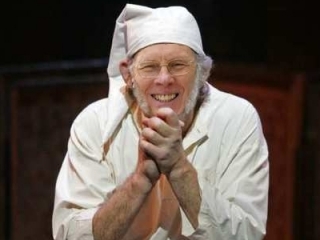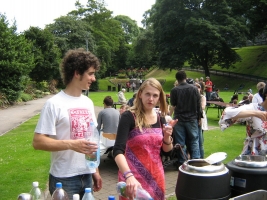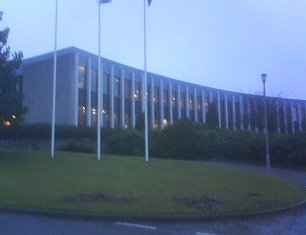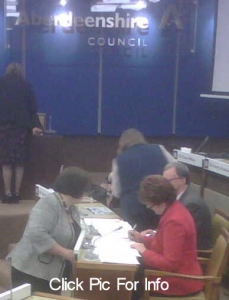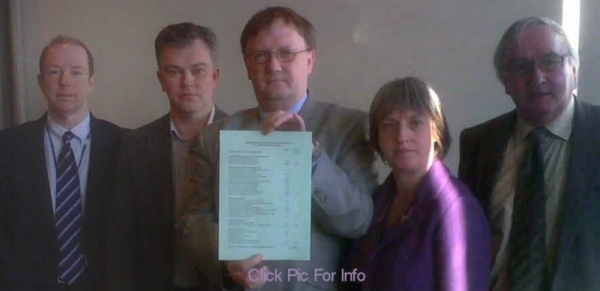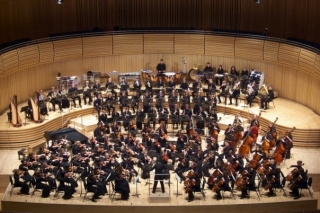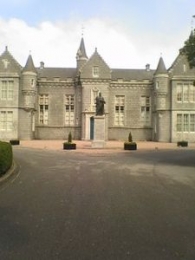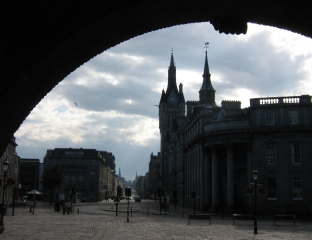Aberdeen Voice presents An Aberdeen Christmas Carol – A work of fiction, with apologies to Charles Dickens, by Suzanne Kelly and Fred Wilkinson.
The Characters
(any resemblance to anyone living, dead, or somewhere between the two is purely coincidental and not at all a deliberate attempt at parody. This is a work of fiction and of Saltire satire )
Ianeezer Scrooge Old, wealthy miser, lacking in compassion but loaded with greed
Gruff and MeKeachruns Servants to Scrooge, supplying his needs
Jenny Crawl Companion to Scrooge, with whom he feeds
Jacob Milney A Spirit – Once partner of Scrooge, now doomed for his deeds
Bruce the Robert A Spirit of Christmas Past, with Scrooge he pleads
ASIF A Spirit of Christmas present, transparent indeed
Hoodie A Spirit of Christmas future – but will Scrooge heed?
Spencer for Hire A waiter
Steve Peters Lord Provost A dignitary
Kevin An errand boy
Mr Mickie Scrooge’s employee, head of a large family
Tiny Tim Mickie Youngest of the Mickie household
Katie Dee & Kevin Dum Washerwomen
* * *
The careful shopper kept one eye on his purse and the other looking upwards, for the gigantic Christmas lights hung over all, like the giant orbs from ‘The Prisoner’, and were prone to falling, crushing the occasional small child or pensioner.
The pubs were filled with young ladies and gentlemen drinking eggnogs and Babycham.
The first snow would soon fall, and Christmas cheer was everywhere. Well, almost everywhere.
A car drove towards an office block; not just any car, but the town’s very own Civic Car. This chauffeur-driven car was the envy of all, and in it sat the Lord Provost Steve Peters himself, and the town’s wealthiest man, Ianeezer Scrooge.
“Listen Peters, I’m a patient man, but if construction doesn’t start soon on my Scrooge family car park and shopping mall, someone’s going to find less cash in their Christmas stocking this year – get the picture?”
The speaker was Scrooge, and although his voice was calm, he was turning a reddish colour. Peters shook his head and rubbed his hands.
“Everything possible is being done – we have our best people ah, ‘volunteering’ to work on the project night and day. Soon the Denburn Park will be officially yours.” Peters answered Scrooge with a slightly nervous voice, for there had been far more opposition to this plan than was expected. The public it seems did not want a little patch of ground turned into a car park.
This piece of ground had been given centuries ago to the people by the famed hero king of old, Bruce the Robert. A statue of him astride a trusty steed stood outside the newly-cleaned (and gutted) Marshall Academy building which now housed the city’s staff. The Denburn Parkland was the property of the people, gifted to they by King Robert, but if Scrooge wanted the park, well, then he must have it.
Teams of lawyers toiled day and night to find some clever way to make it all work. The brilliant, peerless lawyer MeKeechruns could not have been more helpful. Loopholes were exploited, companies set up, and there very best man, Berry Gruff was one of the lead figures making it all fall into place. ‘ If only the people would stop protesting!’ the Lord Provost thought. ‘The wife’s on at me for some more designer jeans, and her clothes are costing a fortune. Guess it’s all on expenses anyway, but still.’
“I want progress soon, understand! You do want to stay Lord Provost, I’m sure, and all those other councillors know what side their bread is buttered on. Get me a progress report tonight.” Scrooge said matter-of-factly, as the chauffeur opened the door and Ianeezer Scrooge alit at the Scrooge Building. He entered the doors, thrust his hat and coat at his assistant Mr Mickie, and strode off to his office, Mickie trotting at his heels.
“Have you written those letters yet?” Scrooge asked “They need to be out to James Brown at the funding office forthwith – but do send them second class – first class stamps are going up again. And who turned the heat up in here? I’m paying for this you know.”
Scrooge’s pet project depended to some extent on a funding application. A Mr James Brown was in charge of the funds. Most of Scrooge’s employees and lackeys had been set the task of writing to Brown, saying what a great project it would be and that funding must be granted.
“Oh, I’m sorry” said Mickie, “I’ll turn the heat off straight away. Yes, I’ve written to ask for the funding for the Denburn project in my own name, in the names of all my wee children, including Tiny Tim, and as myself for all the companies you’ve put me in charge of – in name only of course” he added, seeing Ianeezer had raised an eyebrow.
“Well, I’m out to lunch” said Ianeezer – and Mickie thought that was true enough. “Have you made reservations for me ? I’m taking Jenny Crawl out to the Clifmar for a nice long lunch.”
“Oh yes sir, everything is in place; do have a nice –“ but before Mickie could finish Scrooge was off again.
Mickie knew he had to work hard and do as Scrooge told him. He had all his children to think of, including poor little Tiny Tim who needed a crutch. Not only did Mickie work for Scrooge, he had to hold down several other jobs and even work at the local pharmacy to make ends meet. If only things went Scrooge’s way, then no doubt Scrooge would pass some money onto Mickie as well – at least Mickie hoped so. For Scrooge had pledged to leave the project millions of pounds, and hinted that those nearest to him would likewise be remembered in his will.
Across town Scrooge was peering at the lovely Jenny Crawl over the wine list.
“Is there anything else I can do for you sir, anything at all? Just let me know, I’m your man.” The little waiter, Spencer for Hire addressed Scrooge with great respect. He too hoped to be a beneficiary of the as-yet unseen largess of Mr Scrooge.
“That will be all thank you Spence.” Jenny replied. She was a tall stately woman with long blond hair. She had worked her way up through the ranks and was now in the inner circle of Scrooge’s trusted business associates. She worked long and hard helping Scrooge fulfil his dreams of seizing Denburn Park; it was after all the most desirable piece of real estate in town. Of course they told the public that everything that Scrooge did was for their own good. The truth was something else altogether. If they could only turn this unprofitable bit of land with its trees, grassy banks, birds and flowers into a parking lot, they would become even richer.
They passed a pleasant few hours over caviar, champagne and fine foods. Suddenly Scrooge felt unwell. His head began to swim and his stomach ached.
“Jenny my dear” he sighed. “Not feeling all that well, perhaps I had too much stilton and port. Going home for a lie-down. See you later I trust? Just sign the bill for the project, it was a working lunch after all.”
“Dear Dear Ian” she said; she called him by his shortened name “you must go home and lie down at once! We mustn’t let anything happen to you!” She genuinely looked alarmed. How she must care for him, Scrooge thought.
Before he knew it, Jenny and Spencer for Hire had bundled him back into his limo – he thought they mumbled something about a will – and he was being driven home through town. It was twilight. The moon shown over the Denburn Park as the limo drove past. A shadow crossed the moon and for a moment, Scrooge thought he heard a moan. The car then stopped at traffic lights at the Academy building, just by the Statue of Bruce the Robert.
The moonlight danced on the statue and as Scrooge froze – the horse lifted his hoof and the great Robert leaned forward and pointed at Ianeezer. Scrooge closed his eyes and rubbed them – and when he opened them, there was the statue as motionless as it always had been. ‘I must not eat any more of those funny chocolate brownies Katie my cleaning woman makes. Trick of the eyes.’ He thought to himself.
As he arrived at the Scrooge mansion, his servants Katie D and Kevin Dum were at hand to help him into the house. He ordered his faithful lackeys to bring him his dinner in his room; he would watch television in his bed and get an early night’s sleep.
Some funny programme was on, some old film called ‘It’s a Wonderful Life’. Scrooge stopped to watch for a few moments. In the scene that was playing, a young man called George Bailey was talking to a wealthy man called Mr Potter.
“Just remember this, Mr. Potter, that this rabble you’re talking about… they do most of the working and paying and living and dying in this community. Well, is it too much to have them work and pay and live and die in a couple of decent rooms and a bath? Anyway, my father didn’t think so. People were human beings to him. But to you, a warped, frustrated old man, they’re cattle. Well in my book, my father died a much richer man than you’ll ever be!”
Ianeezer Scooge couldn’t quite fathom what was wrong with the young man, and thought that the Mr Potter character seemed like an admirable fellow.
Just then a gust of wind caused a tree branch to tap on the window at the opposite wall. The noise caught Scrooge’s attention and he turned. For a split second he thought he saw the statue of Bruce the Robert again. A feeling of dread crept over him, but then the moment was gone. Scrooge gradually drifted off to sleep. He though of Christmas and how much it would cost him in holiday wages. ‘Christmas! Bah Humbug!’
Scrooge had a troubled, strange sleep. Waking with a start he noticed the room glowed red in the dark. ‘what the hell is that irritating red light and how is anyone supposed to get any sleep with it on’ he thought when suddenly he realised he was not alone. He clutched the bedclothes and sat upright, heart pounding.
There to his horror was a hideous figure – bald and short in stature with an undefined, characterless face. It wore a red football jersey marked ‘AFC’.
“Ianeezer Scrooge! It is I, your former business partner Jacob Milney come to warn you! Mend your ways, or you too will be damned for all eternity as I am!”
“Milney – is that you?” Scrooge could not believe it – there stood the ghastly apparition which looked exactly like his former business partner Jacob Milney. Poor Milney had blotted his copy book. First there were some funny dealings with the city and a queer land deal. Then Milney alienated the people by buying their city champion curling team, and running it into the ground. People whispered that Milney did not really care for curling at all, and simply wanted to grab as much land as possible. True enough – and Scrooge in the old days felt a paternal fondness for Jacob Milney. But as the tables turned on Milney and he lost credibility and got into trouble, Scrooge quite rightly cut him off.
“Er, look here Milney, I’m hallucinating right? You are just an undigested bit of cheese aren’t you?” Scrooge demanded.
“I’ve been called far worse,” said Milney looking at the floor and shaking his head sadly “Ian, I have been sent here tonight to warn you – you must give up your greedy ways. Three spirits will visit you this night to show you your past present and your terrible future if you don’t get off the path you are on.”
“What’s that thing you’re wearing?” demanded Ianeezer “and what makes you think I’m doing anything wrong?
At this Milney let out a ghostly long wail. “For my greed, dishonesty, destruction of green spaces and miserly treatment of the curling club, I am forced to glow red in the dark like the stadium I built in the nature reserve. I must wear this long chain. It is made from all the trophies and silver that the curling team could have won had I not treated it as a real estate vehicle. And believe me, this is a pretty long chain.”
Jacob shook it for effect.
“Learn from my greed and turn back. Pay your UK taxes. Stop getting rid of green space – and above all: YOU MUST NOT BUILD THE MONOLITH. My time here is ending. I return to my punishment – I am forced to read the fan website and all the newspaper articles denouncing my stewartship of the curling club. Ianeezer….,,”
Milney seemed to shrink to an even smaller shape than he had been in life, and with a final moan (which Ianeezer was used to from their long years of association) he was gone.
“Phew!” Thought Scrooge “If that was poor old Milney, he’s really lost his business sense. But it was only a dream. No more Brewdog ‘Tactical Nuclear Penguin’ for me before bedtime.
He rolled over and soon was sleeping again, but not very soundly at all.
* * *
Somewhere far off a horse whinnied and steel crashed against steel. Scrooge sat up, and there was the great heroic figure of Bruce the Robert.
“Get up ye wee futtret!” Robert demanded.
“Now look here” Scrooge cried ” Don’t speak to me like that, dead hero or not! I’m Ianeezer Scrooge – or Mr Scrooge to you.”
“AAARRGH!” Cried Bruce the Robert, swinging his huge sword close to Scrooge who seemed to regret his earlier rudeness. “Ah’ve focht bloody battles tae win the lands Ah hae noo – but fit aoot yersel? A’ you’ve ivver daen is stan idle watchin rival firms struggle, an’ like a hoodie cra’ pick their banes fan they’re ower puggled tae fecht back.
“Ah dinna ken why Ah should gee ma bahookie ower sic a grippy flechbite as yersel, but somebody hid tae come ower an gie ye a bollockin, an’ as ayewis, it wis left tae Muggins.
“Hemen, ye’ve mair money than ye ken fit tae dae wi, an’ still aye yer needin mair. Ah’m tellin ye noo tae cut it oot!
“Ah ken fit it’s like tae a fair puckly siller. Ae time Ah could hae went onywye an daen onythin Ah likit. Twis naebody’s business fit Ah did wi siller Ah workit for. But Ah gaed awa! ‘At’s richt, glaikit as it micht soun’, Ah gaed awa ma siller tae ornry workin fowks…. an as lang as Ah’m still kent as the Big Bob, fit Ah gied tae the fowks will bide wi the fowks. D’ye underconstumble?
“So if you as much as pint yer finger at ae tree in the fowk’s perk at Denburn, Ah’ll come doon on ye like a ton o’ bricks.
“Noo Ah’ve heard ye bumpin yer gums aboot gaein yer siller awa tae fowk, but dinna kid yersel, the Aiberdeen fowk are nae blin’, an’ they’re nae as feel as ye think. So fit is’t yer buildin onywye? Ah’ve haen a lookie an’ Ah’ve nae seen siccan a sair sotter in a’ ma puff. Fit’s wi’ the muckle gless worm thingmy? Are ye wise??”
“Clearly” Scrooge replied, “You just don’t understand this wonderful gift I’m giving the people.
“There will be underground parking, shopping, ramps to walk on, a monolith, and a great big covered space to sit in. It is the way to ensure our economic future, and people will come from afar to see this wonderful site. And spend money. There will be jobs creation, vibrancy, dynamism. It is a focal point for the civic heart of the city which – “
“Haud yer wheesht min!” interrupted the ancient hero’s ghost forcefully “Div Ah look like a gluepot? Div ye think fowk are feel enough tae believe the tripe comin oot yer mou? Div ye believe it yersel min? If ye dae, then yer mair o’ a neep than Ah taen ye for. Ah’m tellin ye yince mair min jist in case the penny hisna drapped. That perk is tae bide the wye it is … so snoot oot – or ye’ll ken a’ aboot it.
“Richt, Ah’m awa noo, but mind fit Ah telt ye.”
“Is your time on this earth up?” asked Scrooge “You see, if you could just understand why we need to build these ramps and monoliths, then –“
“Nah, ma time’s ma ain” the Robert growled, prodding his finger into his chest “But the verra sicht o’ yer soor coupon is daein ma napper in, so Ah’m aff. But Ah’ll be clockin ye. So get a grip ye grippy git. Yer needin tae heed the wise or wise the heid. Itherwise min, it’s tatties!”
And the ghostly horse reared; the Robert charged the window, and was gone into the night.
“Hm… I guess I believe in ghosts!” Thought Ianeezer – “Hmph! It’s easier to believe in spirits than in any of this public relations ‘vibrant and dynamic’ nonsense – whatever that means. I just want that land, some parking, some shops and of course a statue to ME, which the grateful populace will insist is built. But the spirit was right – perhaps I need to do some more thinking about this project.”
Scrooge shook his head up and down with satisfaction before plumping his pillow, and laying down again.
* * *
“You sit around here and you spin your little webs and you think the whole world revolves around you and your money. Well, it doesn’t, Mr. Potter. In the whole vast configuration of things, I’d say you were nothing but a scurvy little spider!”
The television was still on – these words woke Scrooge up, and he rubbed his eyes. The room was filled with a fuzzy glow. There was some kind of shape in the room, cloudlike with little form. It however spoke in a girl’s voice.
“Hi there! I’m ASIF, the ghost of Christmas present! But you can call me Jan.” the thing said.
“What are you? I can’t figure out what you’re supposed to be?” Scrooge asked, turning his head to one side. The thing existed, yet he could see straight through it but could not tell what it was. It kept changing. Truly this ghost was vibrant and dynamic. At one point he thought he saw a big translucent worm. Another moment and it seemed to be either a big spiderweb or a great big square block.
“You should understand” the voice said “for you are creating me. I am ASIF, your project. I’m not exactly defined yet – no one – not even you – knows what I will look like. You only know that you want me built, and you hope to have a statue of yourself – like the statue of Bruce the Robert. I am here to show you the truth of Christmas Present. You will see what your actions have created in this city for people this very Christmas night. Now come with me. Take hold of my robe and you will be uplifted in more than this. Whatever that means.”
“Now hold on Jan” said a sceptical Scrooge. “I had Milney in her not long ago pretending to be some kind of spirit – just the kind of silly caper that gets him into trouble every time. Why should I think you are ASIF, some kind of a ghost?”
“Well, I’m fully transparent aren’t I?” ASIF answered.
“Very well spirit, show me what Christmas looks like this year.”
They flew out the window. And this is what they saw.
They saw a homeless man shiver in the cold, mourning for his friend who had frozen to death earlier in the week. They saw bulldozers tearing into the remaining countryside; they saw other green fields nearby. They saw some people suffering, and others feasting. They saw pensioners and people with special needs trying to make do. They saw crumbling NHS hospitals and closed down schools. They saw poor ailing Tiny Tim Mickie sitting in a corner of his room, writing letters at his dad’s bidding to James Brown, begging for the Scrooge project to go ahead. They saw the happy, the sad, the rich and the poor. Then they saw the richest man in town’s mansion, and it was Scrooge’s.
“All those people with all their hopes and dreams. All of the land being built on, leaving animals without shelter, space or feeding ground. All the suffering. And yet Mr Scooge, here we are back at your billionaire pad with its comforts and servants. Does this teach you anything at all?” The spirit asked.
“Yes, indeed it does. Thank you ASIF. I have learned much.” Scrooge answered thoughfully. “But what are those two child-like figures clinging to you, hidden under your robes?”
“Fear them Scrooge” answered ASIF “the little boy is Ignorance; he is what happens if schools are closed. The little girl is called Want, and what you waste in a day could save her.”
“Would I get any tax break if I make a donation?” Scrooge asked. The spirit pretended it hadn’t heard this question.
“I shall leave you now, and another spirit will soon appear to show you the future.”ASIF said. With that, the ghostly shimmery giant worm thing was gone.
“I shall make use of what she showed me. I shall change” Ianeezer thought. “And now I await my last spectral visitation.” He sat on his bed, and noticed the movie was still playing. It felt as if this night was never going to end, yet if the movie was still on, only moments had passed.
* * *
A wild wind was blowing; Scrooge’s windows were thrown wide open by an invisible force. Before the spectre, who was wearing a hoodie that covered its face entirely could speak, Ianeezer began.
“Look, I know who you are and why you’re here – let’s see the future, for I’ve been given much food for thought tonight. Time’s money, let’s get a move on.” The spectre grabbed Scrooge’s arm and they flew forward in time.
They were still in Scrooge’s house, but according to the calendar some 20 years had passed. Two old haggard ladies were arguing, and the draperies were closed around Scrooge’s bed. They were his faithful servants, Katie D and Kevin Dum.
“I’ll have that for all the years of suffering I’ve endured.” Said one of the washer women. She was grabbing a casket of silverware.
“Fine – take that, I’ll get the old fool’s fillings from his teeth!” said the other scrubber. More voices were heard, and the two washer women scarpered. Soon a party of lawyers, councillors, and the lovely Jenny Crawl dressed head to toe in black entered. They all sobbed.
“See spirit! See how they miss me!” said Scrooge, who realised it was his deathbed they were seeing. He felt most proud at this outpouring of grief.
“Bollocks!” said Jenny. “After all those years of crawling, the old bastard not only didn’t leave money to the Denburn project, he’s not left me more than an old photo of himself! The nerve!”
“Years I printed what I was told, and more to the point I didn’t print what he didn’t want out. And it’s all been for nothing.” A man with a folded up newspaper under his arm simmered angrily.
“My project, my beautiful project!” said Gruff “who’s going to pay for it now!? Hundreds of millions of pounds are needed, or the city will go broke.”
“I thought I had all the angles covered,” wept MeKeechruns “I’m usually so very, very brilliant!”
The miserable party railed at the dead man. “Show me no more of this!” cried Scrooge. He blinked and found himself at the home of his servant, Mickie. Tiny Tim’s crutch lay along against the fire place.
“Where’s Mickie’s son Tiny Tim?” asked Scrooge
Before the spectre of Chrismas Future could answer, the Mickies entered the room.
“My poor wee Tim!” cried Mrs Mickie “Who would have thought he could die from writer’s cramp? It was bad enough he had to bombard James Brown with letters demanding that the funding for Scrooge’s project be granted.” She sobbed, “But it was just too much for wee Tim to have to also forge all those referendum ballots too. Ah, my poor boy!”.
Scrooge and the spirit were suddenly in the fresh air, in the middle of what seemed like a party. It was the Denburn Park, but not as Scrooge remembered it. A giant steel skeleton with smashed glass panes lay to his left. A giant huge monolith with no windows stood nearby. A schoolboy threw empty bottles of Buckfast off of a giant concrete ramp covered in graffiti.
On a stage under the ramp, Status Quo played to an audience of OAPs. Groans intermixed with the sound of car engines emanated from the oversized Monolith. It bore a sign that read “The Ianeezer Scrooge memorial Monolith – parking, shopping and children’s Workhouse.” But all were rejoicing as overhead a grafittied monorail limped to a halt.
“He’s dead! He’s DEAD!” they all cried, raising glasses of latte or vodka overhead. Scrooge did not want to know who’s death the rabble were cheering – he had his suspicions.
“Spirit, show me no more. I have learnt my lessons well. Thank you. I promise I will make changes!” And with these words from Scrooge, a bolt of lightning blinded him for a moment. Then, he was in his own room again. The calendar showed he had returned to the present time.
Scrooge was much changed by what he had seen.
* * *
“Remember, George: no man is a failure who has friends”
Incredibly, the movie ‘It’s a Wonderful Life’ was only just now ending, although Scrooge felt his ordeal had lasted several nights not hours. Scrooge sat straight up in bed, and the sunlight streamed through the window. He laughed out loud. Throwing on his robe he raced to the window, still laughing, and threw open the sash. A boy was visible nearby.
“You there boy, what day is this?” Scrooge demanded.
“Why sir, it’s Christmas day!” the puzzled lad answered.
“Then a merry Christmas to you! See this twenty-pound note?” Ianeezer asked, waiving a bill in the air
“Yes Sir!” answered the boy
“Go and fetch me the biggest turkey in the whole town!” Scrooge commanded
“Dean, Fletcher or Malone?” asked the lad
“Ho ho – smart lad! Fetch me them all! – and Gruff and MeKeechruns as well!” Scrooge answered, and disappeared from the window. “Much to do today! Much to change!” he thought to himself.
In a little under an hour later, a somewhat disgruntled motley crew of councillors, officials and others connected to the Denburn Park project found themselves in Scrooge’s drawing room.
“I’ll bet you wondered why I called you hear today” he asked. A chorus of “we are happy to be here, and ‘merry Christmas sir” greeted him.
“I’ve been thinking about the project, and have a new suggestion or two – believe me, these changes are very forward looking.” Ianeezer announced. The assembled great and good replied ‘fantastic!’ ‘can’t wait!’ and so on.
“We’re going to electrify the worm, and throw anyone in prison who touches it. Now the monolith idea – what if as well as underground parking we put in a workhouse? We’ll save money putting the kids in workhouses and closing more schools. Do you think that will be possible – I mean think of the labour saving and government grant possibilities!”
There was a moment’s silence “Well, are you with me – remember the money I’m leaving in my will!” Scrooge said with a hint of threat.
“Astounding!” “Visionary” “Vibrant!!” “Dynamic!” “Inclusion!” the buzzwords he so loved rang out across the room.
“Merry Christmas – now back to your homes. Jenny – stay for a drink won’t you?” A shadow seemed to cross her face for an instant, but it was gone.
Ianeezer Scrooge was a happy man indeed, and remained grateful to the spirits to the end of his days.
“Please sir – the twenty pound note?” asked a wee boy in the back of the great drawing room. “Yes, here it is” Scrooge said waving it, “And if you do me another favour sometime, I’ll show it to you again.”
Amid the approving nervous titters of the council bigwigs, the boy was shown the door.
Somewhere far away, an icicle formed under the eye of a bronze statue of a former king of Scotland.
THE END.
